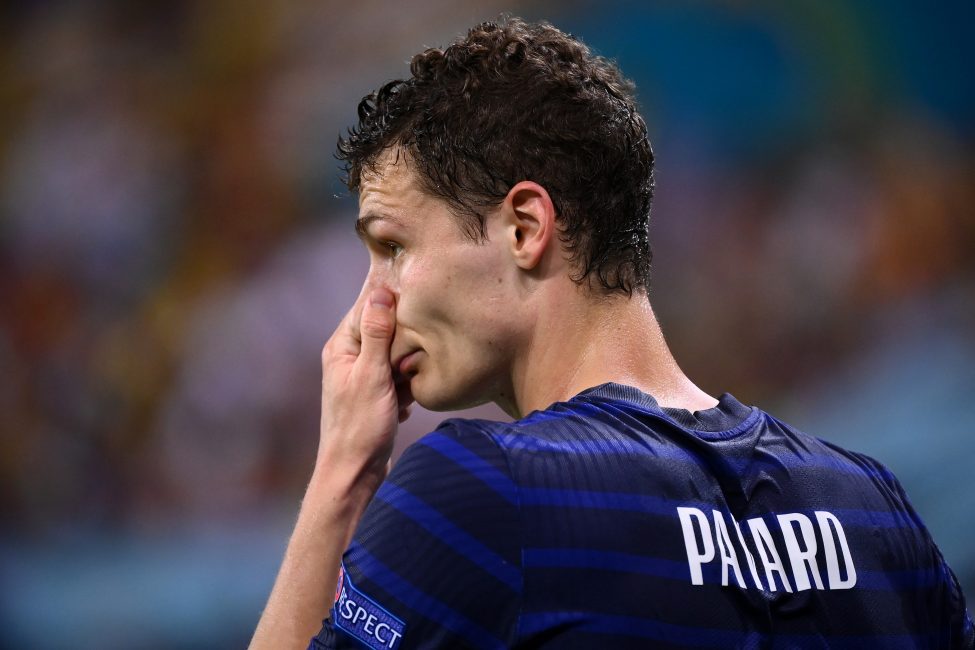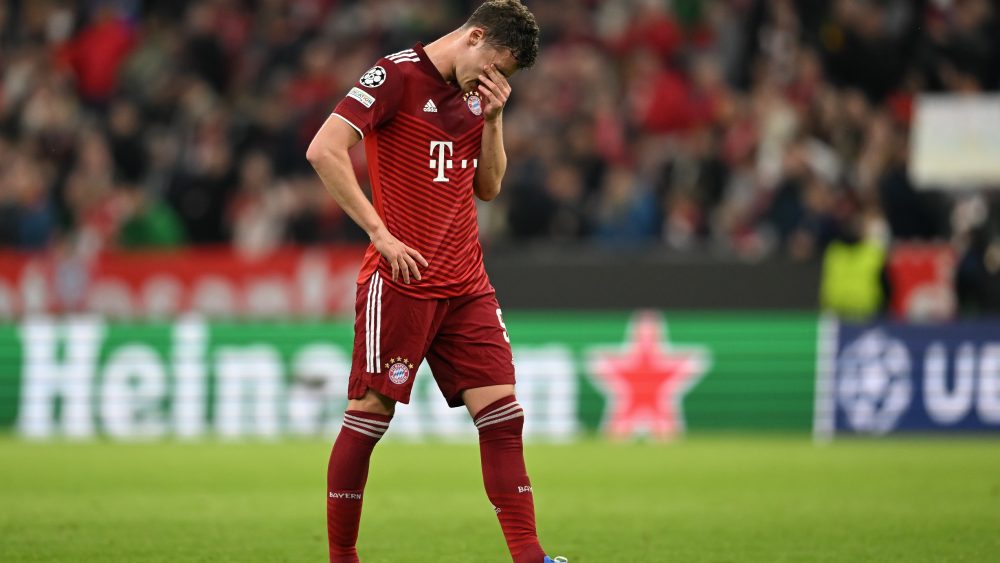Benjamin Pavard: year of truth at FC Bayern
The expendable Pavard?
Benjamin Pavard has had an eventful time at FC Bayern. At the beginning, in the summer of 2018, people were cheering the prudent signing of a talent of this caliber for next year. However, he arrived not as the world champion he actually was, but with the millstone of Stuttgart’s relegation around his neck. Against all the prophecies of doom, Pavard developed into an steady regular in right defence, hardly missing a second of play. Nevertheless, his consistency seemed to go almost unnoticed. He was never considered more than FC Bayern’s eleventh player, fielded for a lack of alternatives, a player who the media wrote out of the team week after week.
Then he got injured before the final tournament in Lisbon and the critics seemed to be proved right. Forced to do without Pavard, Hansi Flick ordered Joshua Kimmich to play in his position and Thiago alongside Leon Goretzka. In this formation, all three players showed absolute world class in Portugal. No one missed Pavard. What’s more, more than a few people, drunk on Bayern’s success, maintained that Pavard’s injury even was a stroke of luck, since it was only that way that Bayern’s best team could emerge.
Just a legend?
Leaving aside the maliciousness of this phrasing, these people were, stupidly enough, not completely wrong. At least in relation to the tournament in Lisbon. Pavard’s characteristics are those of a hard defensive worker who has the back of the more offensive actors in his team and, when in possession, can aptly pass the ball to the better-positioned player without interrupting the flow of attack. Especially against FC Barcelona and somewhat less so against Olympique Lyon, this was not really needed, as both opponents were overwhelmed with sheer unrestrained offensive power. Kimmich was indeed the perfect man for the job in these games.
But things looked different against PSG. Here, Pavard’s qualities would actually have been highly welcome to rein in Neymar’s offensive drive. Still, because Kimmich delivered probably the most defensively alert performance of his right-back career, his absence was little felt. The Champions League was won with an assist from one of the stand-in’s rare attacking forays and thus the legend of the expendable Pavard had ultimately been written.
Pavard’s rare strengths
Yet on the whole he was anything but expendable in the treble year. Apart from the already mentioned tactical necessity for him as a classic defender forming an important counterpart to Flick’s sturm-and-drang offensive, it was also simply his performance. Pavard won most of the duels he had to win and simply did a rock-solid job. No, he was not able to impersonate a Paolo Maldini or Liliam Thuram, but that was perfectly fine. Even without reaching those heights, he was a perfectly adequate defensive right-back.
And yet he remains controversial to this day. Are these all remnants of a brief 2020 summer legend creation? No, certainly not. They are entirely justified doubts in the wake of a clear drop in performance in the two years that followed. His tactical role remained the same, and under Julian Nagelsmann his importance increased even further, as he more often became the important link turning a back four into a de facto back three. But it is not tactical problems that cast doubt on him. It is not even his limited skills on the ball that make people angry. No, it is the ordinary, run-of-the-mill centre-back things that Pavard did worse in the last two years. He simply too often lost decisive duels, mostly with direct goals against as a result. They who hold with Bayern could all too often become upset about easy goals conceded in the last two seasons. Bayern’s defence was associated with chaos, even slapstick sometimes. For this all defenders bore a varying share of the blame. We have already brought up Upamecano, and Süle’s performance ultimately led to FC Bayern letting him go to BVB without much fanfare. Despite his numerous mistakes, Hernández was probably still the best centre-back (and that is saying something).
Pavard ranks somewhere in the middle, he did not have the erratic slips of Upamecano, including one resulting in a substitution. Nevertheless, with his sometimes casual play he contributed to too many goals against. In autumn, he bounced back a little, but his resurgent form should not last long. All in all, he was far from his performance of the first year.
By the way, the bare statistics do not support the theory of Pavard being a weak tackler. He had his weakest success rate in his first year. However, one has to ask to what extent the “tackling rate” statistic is at all reliable. What do statisticians consider a duel? How is it evaluated? Is winning a duel always desirable if one is subsequently in an unfavourable position?

(Image: Daniel Mihailescu – Pool/Getty Images)
A deciding year
Benjamin Pavard is at a crossroads. His contract is set to expire in 2024, which means FC Bayern will either extend with him or try to sell him next year. With the signing of Noussair Mazraoui, Pavard will now probably increasingly play in a dedicated centre-back role from the outset, Pavard’s self-confessed favourite position. Since Joshua Kimmich’s moving one position up to midfield, Pavard has been de facto without competition at right-back, enabling him to make himself at home there. Even Josip Stanišić’s spirited performances and his own lack of form did not cost Pavard his regular place. Competition is good for business, and Pavard could even inspire it in the past.
If you look at his career, you can easily come to the conclusion that Pavard needs the pressure. He advanced to the Bundesliga with Stuttgart as a young talent who wanted to prove himself. He played so well that he came on the radar of Bayern and the French national team. There he was ridiculed at first, and again he had to prove himself. Once more the pressure elicited peak performances. He became world champion as a regular starter for the national team. Suddenly, he no longer had to prove himself – and his performances at Stuttgart declined. Again there was a chorus of criticism that he was not all that good. So when he moved to Bayern, it was there again, the pressure. Once again he was able to convert this into positive energy. Two years of ease followed, in which his regular place neither in the national team nor at FC Bayern was in doubt, the pressure was gone and so were his top performances.
He now has competition, perhaps it will lift him to top performances again. Pavard has to stabilize now and put in at least a consistent season, otherwise the club may only initiate contract talks with a similar level of excitement and purpose as with Niklas Süle. The outcome might be similar, too.












Great article as usual. I will say I never fully appreciated the negativity he receives. He perhaps made some comments in an interview that rubbed some people the wrong way, but he rarely stuck out to me as “the problem” with our defense. He does run hot and cold, but apart from early last season, I think he’s been solid not spectacular. I hear DeLigt rumblings, which are exciting, but I am unsure where that money comes from.
A consistently solid defender more so in a team with a proper defensive structure which we severely lacked last season